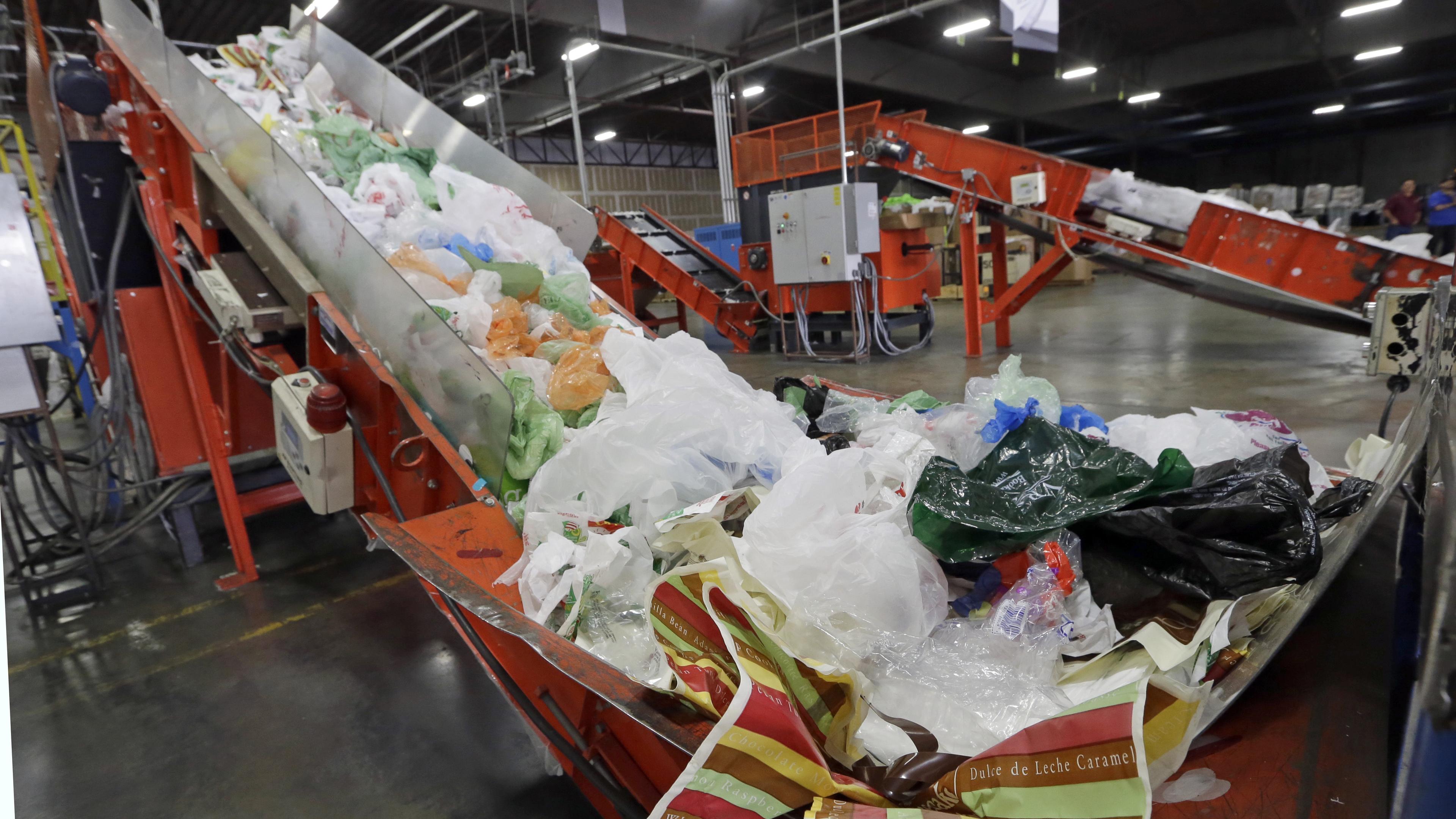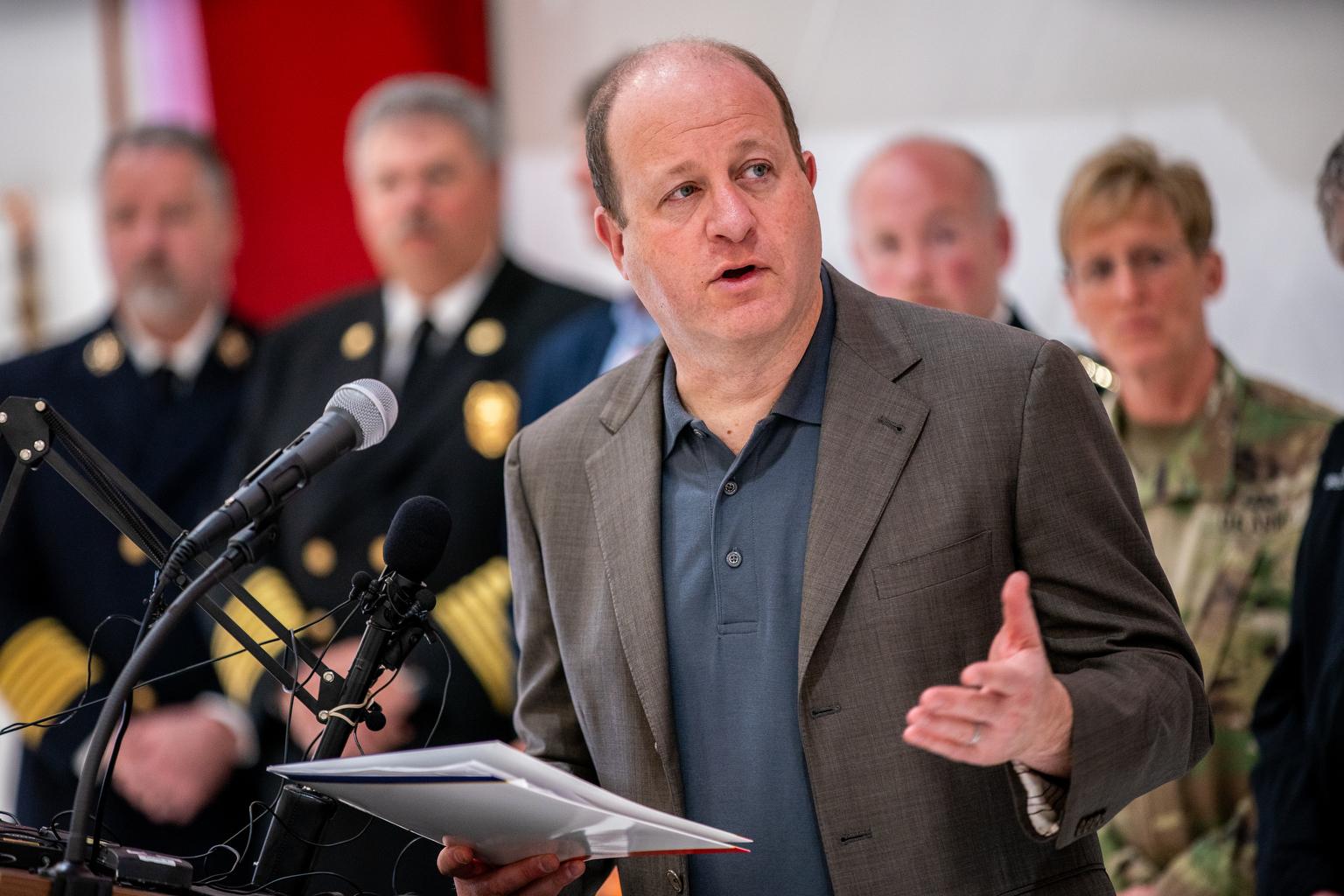
A new bill recently sent to Gov. Jared Polis is meant to send a message to the U.S. plastics industry: Colorado, unlike other states, doesn’t support its latest plan to keep its products from filling the world’s oceans and landfills.
Earlier promises to recover and reuse plastic products have failed to materialize for decades. Despite the recycling labels printed on plastic packaging, the latest federal data suggests the U.S. only recycles about 8.7 percent of its plastic waste.
The industry’s latest strategy to boost the figure depends on what the petrochemical firms call “chemical recycling” or “advanced recycling” — a set of processes that break down plastic waste using chemical solvents and heat applied in low-oxygen conditions. The resulting gases and liquids can serve as the feedstock for new plastics and provide fuel for vehicles or other industrial uses.
Environmental advocates, however, warn advanced recycling is another public relations effort to distract from efforts to cut plastic consumption. In Colorado, groups like recycling nonprofit Eco-Cyle and the environmental group GreenLatinos have further argued existing advanced recycling plantshave polluted low-income communities — like Zebulon, North Carolina — already struggling with climate change and environmental contamination.
“We don’t want our communities to become laboratories,” said Randy Moorman, the director of community campaigns for Eco-Cycle. “At the very least, we shouldn’t be publicly financing projects with such an abysmal track record.”
In the recent legislative session, the groups spearheaded Senate Bill 24-150, a bill originally designed to ban any future advanced recycling projects from being established in Colorado. The final version, approved by lawmakers last week, dropped a full prohibition in favor of a plan that blocks state incentives for the projects. It also clarifies any future chemical recycling plants must follow the same state and local regulations that apply to traditional solid waste incinerators.
It’s unclear if Polis will sign the bill. Shelby Wieman, a spokesperson for the governor’s office, said he will decide after he reviews the final version of the legislation.
A response to a growing push from the chemical industry
While Colorado doesn’t currently have any advanced recycling plants, the latest legislative battle comes as the plastics industry attempts to promote the technology around the country.
In the last few years, the American Chemistry Council, the country’s leading petrochemical trade group, backed legislation in at least 24 states to reclassify advanced recycling as a manufacturing process rather than a waste management process. The move allows the facilities to proceed under less stringent environmental and pollution regulations.
The lobbying push has coincided with a surge in investment in the technology. A recent report from Beyond Plastics, an environmental advocacy group, found 11 chemical recycling plants operating in the United States as of September 2023, with at least 30 more under consideration. The authors also claimed that the collective capacity of the existing plants could process less than 1.3 percent of the nation’s annual plastic waste stream.
Critics are not only concerned that chemical recycling mainly amounts to a public relations exercise. Even though the industry has often claimed the facilities work as “closed loop” systems, journalistic investigations and nonprofit reports have found that the plants generate hazardous waste and air pollution.
Ean Thomas Tafoya, the Colorado director for GreenLatinos, said that’s especially concerning since many of the plants are in low-income communities of color. “It’s the same old story we’ve heard a million times,” Tafoya said.
It appeared the trend could spread to Colorado following a pair of announcements last year for potential projects shrouded behind code names.
In a memo presented to Greeley’s Urban Renewable Authority in February 2023, the city revealed it had spent more than a year working with an unnamed company on a plan called “Project Energy,” which included a 40,000-square-foot chemical recycling plant. A month later, the Colorado Office of Economic Development and International Trade announced it had given initial approval for more than $600,000 in tax credits for “Project Molecule,” a proposed advanced recycling plant in Weld County to convert tires into diesel fuel and other materials.
Colorado’s economic development office, along with others across the country, doesn’t disclose complete information about a company to protect future investment plans. While confidentiality is standard practice, Tafoya nevertheless says residents deserve to know about any plans to add new pollution sources.
“We hear about these things. We call the local councilmembers, we call the local county commissioners, and they’re in the dark. It should not be that way,” Tafoya said.
After residents objected to the proposed plant in Greeley, the company behind the project dropped its plans to build an advanced recycling facility. All Recycling, an Englewood-based scrap processor, will proceed with a plan to develop a waste transfer station at the same location, John Hall, Greeley’s director of economic development and urban revitalization, told CPR News.
Whether Project Molecule will move forward is less clear. Alissa Johnson, a spokesperson for Colorado’s economic development office, said the state approved a startup called MSR Recycler to receive a tax credit last year, but declined to say whether the company planned to proceed with its tire recycling project.
It also wasn’t possible to find contact information for the company online or through Colorado’s official business record database. Meanwhile, a spokesperson for the Colorado Department of Public Health and the Environment said the state is not currently reviewing any permit applications for planned chemical recycling facilities.
One project with a more concrete future is led by Ed VanDyne, a serial inventor and Loveland resident and the founder of Plastic 2 Green. The company is currently developing a method to turn waste plastic into ammonia, a key ingredient in fertilizer and a potential carbon-free energy source.
The one-year-old start-up aims to demonstrate the process for investors with a mobile laboratory. After that, the company is planning to open a Colorado pilot plant in 2026 to further validate the technology, which VanDyne said will operate using renewable energy and won’t produce any other pollution. The sole byproduct, he said, is sand and dirt.
While VanDyne’s company will rely on processes similar to methods in advanced recycling plants, he thinks making ammonia will prove far more profitable than producing material for new plastics. That’s also why he isn’t concerned about a ban on state incentives, but is glad the legislature opted against an outright ban on advanced recycling
“If they were to ban something like what we're doing, they're going to miss out on getting rid of all the carpeting and all the styrofoam in this state and all the unrecyclable plastics,” VanDyne said. “It would all head straight to the landfill.”
A full ban vs. a ban on state support
The prospect of future advanced recycling operations in Colorado led environmental advocates to push forward on the initial bill to ban the technology altogether.
That initial version, however, met resistance from State Sen. Chris Hansen, D-Denver, who worried it could hinder innovation around pyrolysis, the technical name for the process of disintegrating plastic using high temperatures and low-oxygen conditions.
In the state Senate, he won approval for an amendment to exempt pyrolysis from the overall ban but keep a prohibition on plants using traditional open-air combustion. Meanwhile, supporters maintained both industrial processes could pollute communities and provide a pretext for continued plastic production.
That led backers to shift tactics once the bill reached the state House. In an initial committee, bill sponsor State Rep. Meg Froelich, D-Greenwood Village, amended the bill to declare the project ineligible for any state incentives rather than banning any specific technology
“The bill does not ban any processes from existing in Colorado — as much as we would've maybe liked to have gone that route,” Froelich told her fellow lawmakers. “This just says we're not going to lure you here with tax dollars.”
Later amendments added exemptions for university research projects and facilities working to process plastic into sustainable aviation fuel. Those changes, in the end, were enough to earn State Sen. Hansen’s vote, who said the final version allows companies to prove the technology can meet Colorado’s pollution standards and “stand on its own two feet.”
The final version, however, has worried Richard Werner, the president and CEO of Upstate Colorado Economic Development, which works to attract businesses to Weld County. If Polis signs the bill, he worries it could remove a critical tool necessary to lure investments into Colorado.
“Disabling the state’s ability to support economic development projects is deeply troubling,” Werner said.









